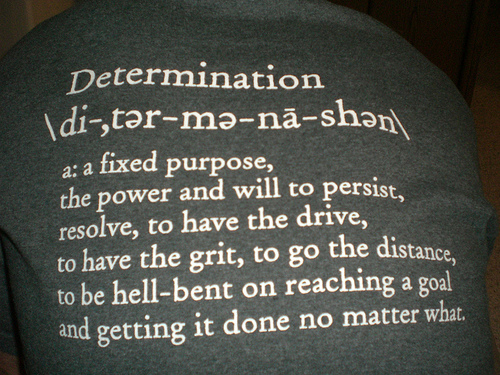Creative Writing Prompts to Freshen Up Your Writing
Today’s guest post is by Tal Valante, who inspires writers with writing prompts:
Ever run into the dreaded writer’s block? Well, join the party. Every writer faces dry spells now and again, but as Jack London said, “You can’t wait for inspiration. You have to go after it with a club.” And creative writing prompts make an excellent club.
It may seem counterintuitive, to abandon the work you’re stuck with in favor of a frivolous turn of the pen (or keyboard). But trust me, it’s just what the doctor ordered. A good story starter will get your creative juices flowing and help you clear your head. It will make writing fun again, which could be just the thing you need to get past your block. Besides, you can never know what new masterpiece might be born from an innocent prompt. That’s why I love them so much.
Finding Writing Prompts to Inspire You
The Internet offers a plethora of writing prompts, though you might need to sift through them until you strike gold. My private peeve is single-word topics masquerading as a prompt. “Motherhood” simply doesn’t work for me (though it might work for you).
Google “writing prompts” for a plethora of them. Make sure to go past the first page, too. For example, a nice collection is at Dailypost. Or you can try my own website—All Writing Prompts.
Prompts should be something you can sink your teeth into. Good writing prompts are specific enough to spark an image in your mind, but vague enough to let you take it from there. They will make you ask questions rather than give you answers. In fact, the more questions you ask yourself when you approach a writing prompt, the more detailed and rich the resulting piece would be.
Creative writing prompts come in all sizes and shapes, so there’s got to be some out there that would work for you. Here are some examples:
- First-liners. Ever stared at an empty page or screen and felt that breaking that virgin whiteness is beyond you? No more. First-line prompts help you completely bypass the empty-page stage by providing you with a first sentence. All you have to do is continue in the same vein. A good first line will drop you straight in the midst of a good story, and will raise so many questions you’ll be spending the next few hours trying to answer them. Here’s one example.
- What-ifs. “What if?” is a wonderful question that sparks interesting fiction. What if we’re not alone in the universe? What if dragons really did exist? What if JFK hadn’t been assassinated? Open your mind to a whole new realm of possibilities, and they will take you on a wonderful journey. What-if prompts especially lend themselves to fantasy or science fiction writing. Example.
- Some prompts will invite you to explore a character type. Once you have a well-developed character in your mind, with habits and wants and wishes, a story is sure to follow. It’s as simple as figuring out what the character most dearly wants, denying her that very thing, and seeing how she deals with it. Example.
- Go back in time to explore your youth or childhood, to see old things with new eyes, and to draw on them for inspiration. Memories are the most basic building-stones of our writing. We remember feelings and actions, and give them new life and form on the page. Everything that moved you, scared you, or upset you as a child can be used to evoke the same emotions in your readers. And evoking emotions—that’s half the job of a writer. Example.
- Shopping lists. These are fun little challenges that demand you to combine several words or expressions in a story (or poem). For example, write a short story that uses the words “elm,” “cough,” and “blue.” It’s a lot of fun to make them fit together in a natural way! Example.
- We humans rely heavily on sight. Some writing prompts will challenge you to focus on a less common sense and write with that in mind. For example, writing from the point of view of a blind man can give you quite an exercise in describing things in a new way. Example.
- Point of view. Some prompts challenge you to write from a new, unexpected point of view. One of my favorite prompts (that I’ve written) encourages you to explore the world through the eyes and mind of a guide dog. By choosing a special point of view, you also choose how your prose would sound, what you would be writing about, and so on. Example.
- Scenarios. These prompts present you with a frozen tableau, where the actors are in position and the cameras are ready to roll. One, two, three, action! Go ahead and tell us what happens next. I like prompts like these because they make you think not only about how things will unfurl but also about how they came to be the way they are. Example.
I’m sure there are many more forms of writing prompts, but these should get you started. Find out what works for you, and try a prompt or two from that class. You’ll be surprised how relaxing and fun it can be to start a new piece for the simple pleasure of writing, with no deadline sword hanging over your head. It might bring out the kid in you, wake up your brain, and even remind you why you wanted to be a writer in the first place.
 Tal Valante is co-owner of Riptide Publishing, an editor, a writer, and the founder of All Writing Prompts, a website dedicated to free, high-quality story starters. Reconnect with your muse by connecting with All Writing Prompts on Facebook and Twitter.
Tal Valante is co-owner of Riptide Publishing, an editor, a writer, and the founder of All Writing Prompts, a website dedicated to free, high-quality story starters. Reconnect with your muse by connecting with All Writing Prompts on Facebook and Twitter.












Thanks! I didn’t know about All Writing Prompts, but that looks like fun.
Hello J’aime, I’m glad you like it! You’re always welcome to dig in for inspiration!
One of the most interesting writing prompts I’ve come across asks the writer to narrate a scene from the point of view of an inanimate object. It sounds a bit odd at first, but it gives you a chance to literally look at a scene from a new angle.
I love that idea. I’ll have to ask my computer what she thinks about that.
That’s a wonderful writing prompt! I have something similar at http://www.allwritingprompts.com/living-objects . It’s such a great exercise for the imagination 🙂
Thank you for providing so many new ideas. Love it!
Blessings,
Danie
My pleasure, Danie! Write on!
Great post! I used prompts before, but I never thought to divide them by categories. This gives me a chance to work on particular aspects of writing.
And for those who feel guilty for abandoning their current manuscript for a prompt, they can always use the characters, events or setting from that manuscript, write about an event from character’s childhood or put them in an unexpected situation and see how they’ll react. In that way you get a break, and still work on your character development.